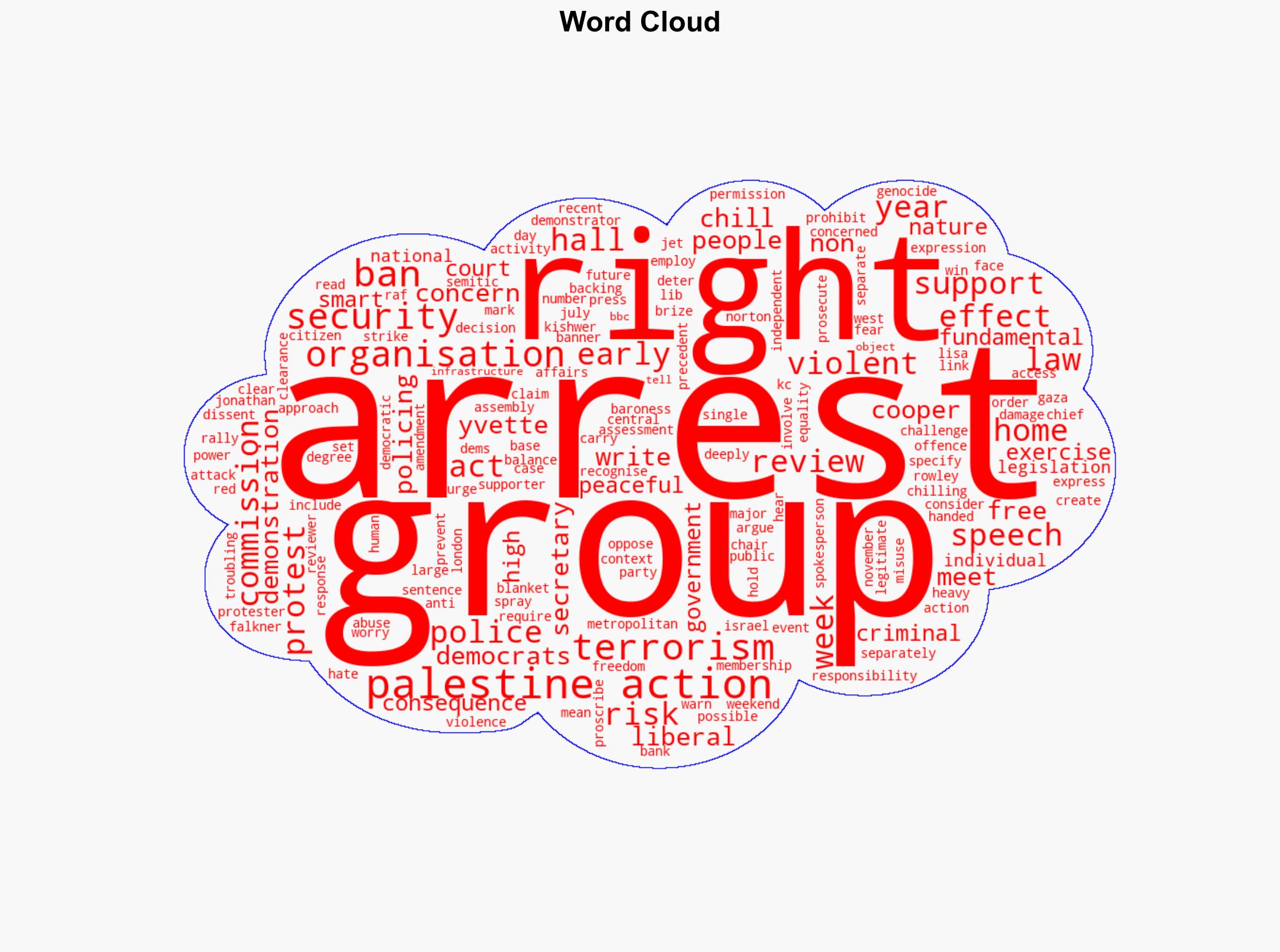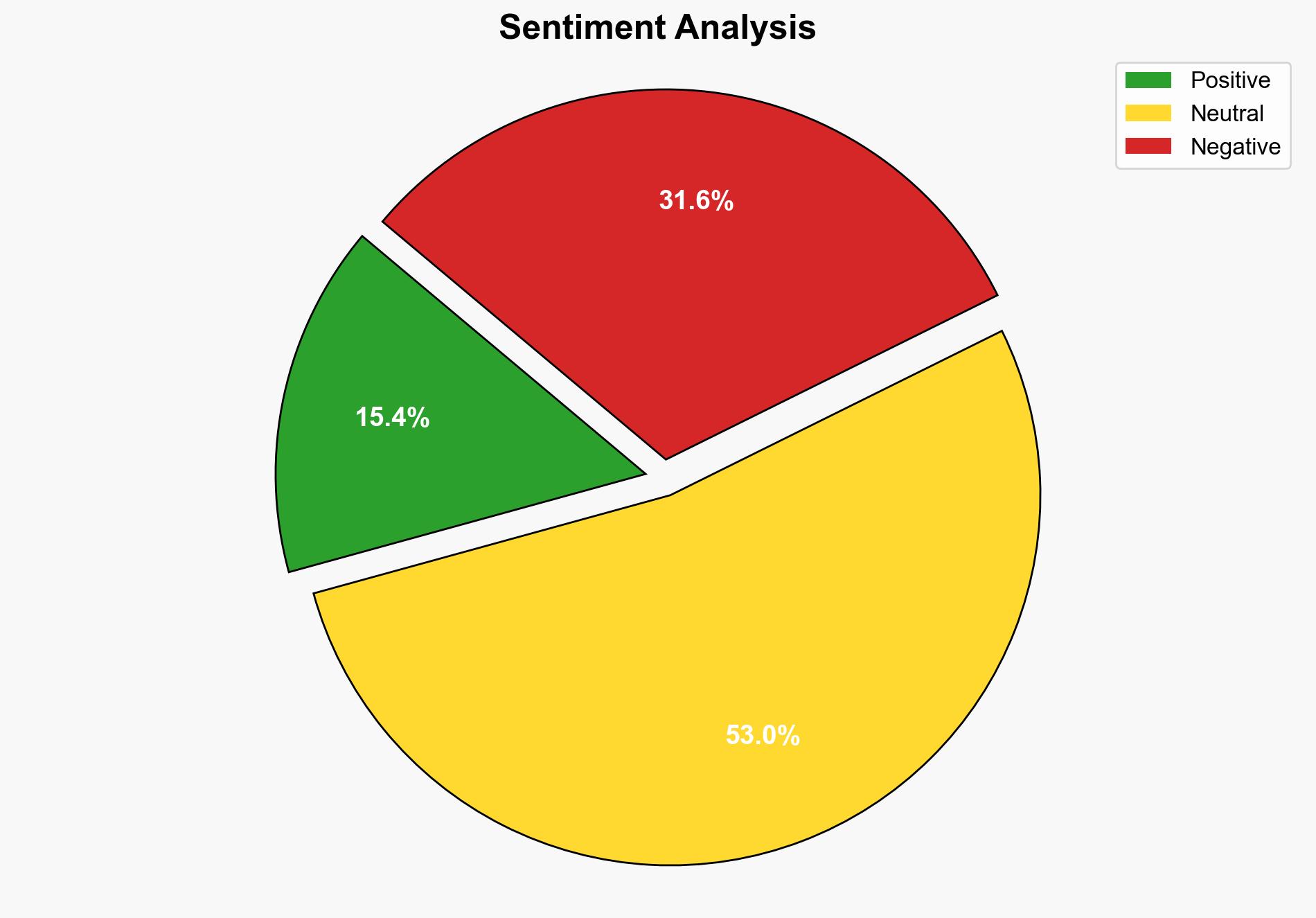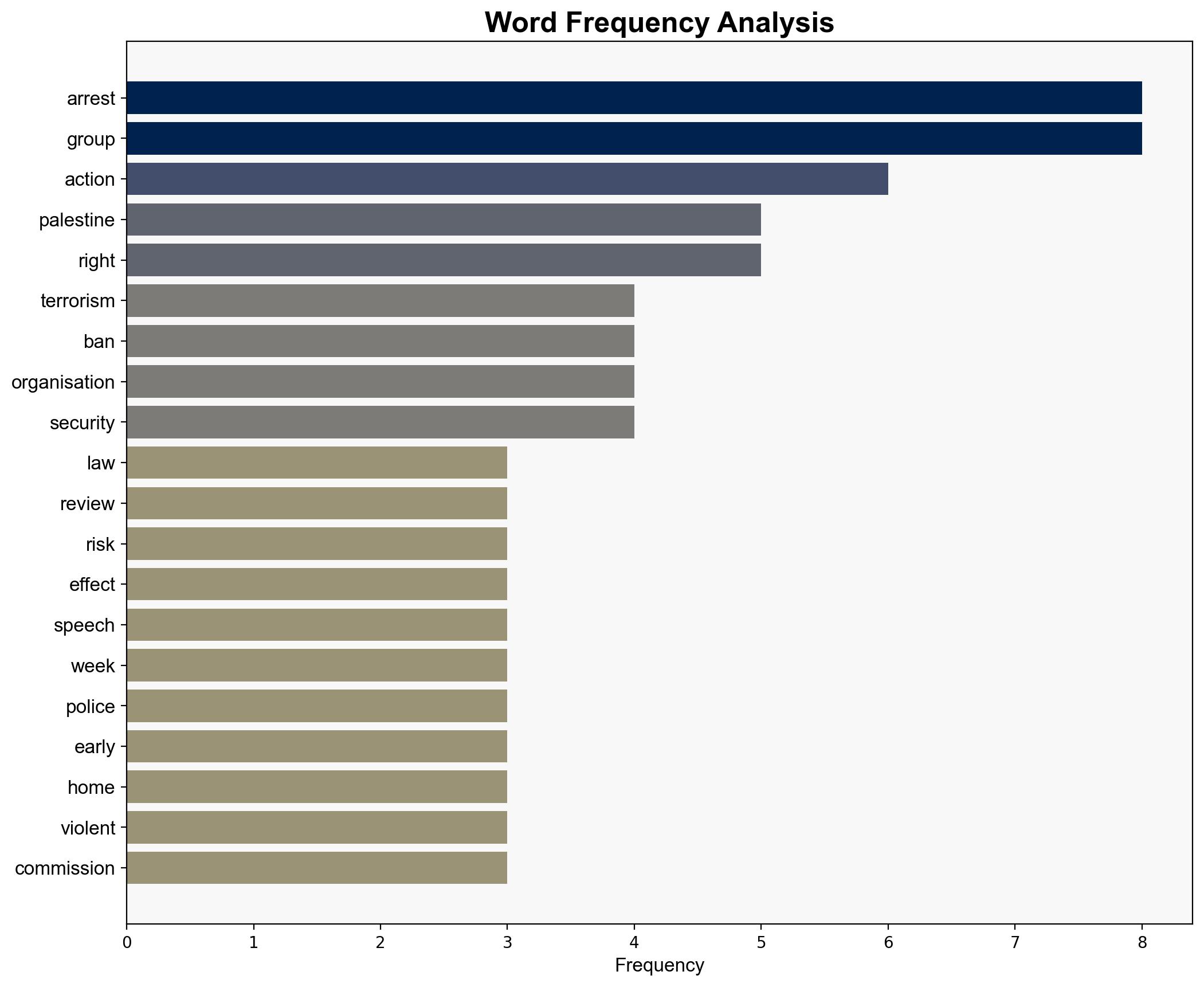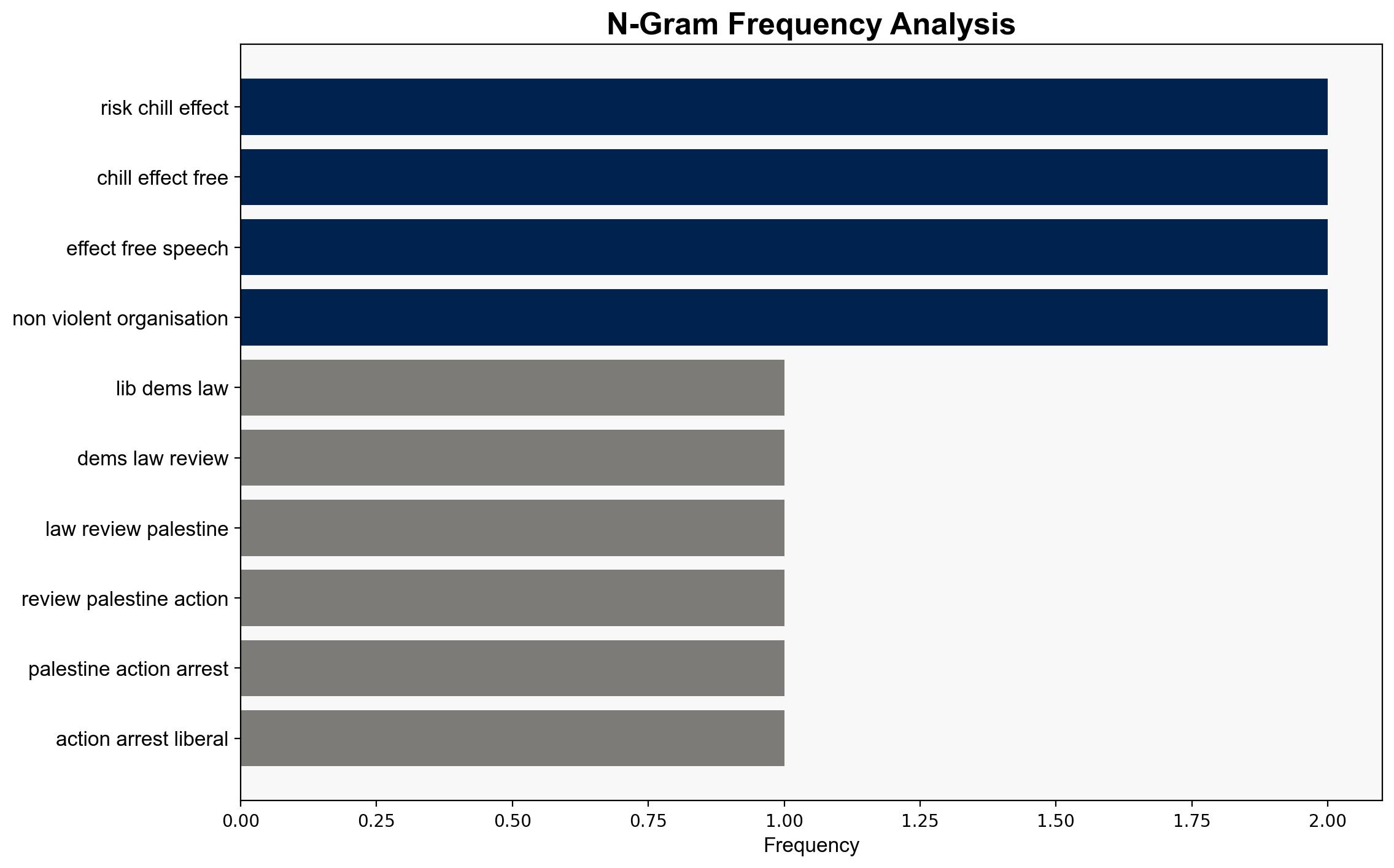Calls for review of law after Palestine Action arrests – BBC News
Published on: 2025-08-15
Intelligence Report: Calls for review of law after Palestine Action arrests – BBC News
1. BLUF (Bottom Line Up Front)
The most supported hypothesis is that the current legal framework may be overly broad, potentially infringing on civil liberties under the guise of national security. Confidence in this assessment is moderate due to the complexity of balancing security with civil rights. It is recommended to conduct a comprehensive review of the legislation to ensure it aligns with democratic principles while maintaining security.
2. Competing Hypotheses
1. **Hypothesis A**: The arrests and subsequent calls for a law review indicate that the current legal framework is being misapplied, potentially infringing on civil liberties and freedom of expression.
– **Supporting Evidence**: Concerns from the Liberal Democrats and the Equality and Human Rights Commission about the chilling effect on free speech; the non-violent nature of the group’s activities as claimed by supporters.
2. **Hypothesis B**: The legal actions and arrests are justified due to genuine security threats posed by the group, necessitating stringent measures.
– **Supporting Evidence**: Statements from Yvette Cooper regarding violent attacks and criminal damage; the Home Secretary’s decision based on a clear security assessment.
Using ACH 2.0, Hypothesis A is better supported due to the broader concerns about civil liberties and the lack of clear evidence of violent intent by the group, as highlighted by independent reviewers and human rights organizations.
3. Key Assumptions and Red Flags
– **Assumptions**: Hypothesis A assumes that the group’s activities are primarily non-violent and that the legal framework is being misapplied. Hypothesis B assumes the group’s activities pose a significant security threat.
– **Red Flags**: Potential bias in security assessments; lack of transparency in the decision-making process for proscription; possible over-reliance on anecdotal evidence rather than comprehensive threat analysis.
– **Inconsistent Data**: Discrepancies between the group’s claimed non-violent stance and the government’s assertion of violent activities.
4. Implications and Strategic Risks
– **Civil Liberties**: Misapplication of terrorism laws could lead to erosion of public trust in government and law enforcement.
– **Geopolitical**: Heightened tensions in domestic and international relations concerning Middle East policies.
– **Psychological**: Potential radicalization of individuals who perceive the legal actions as unjust, leading to increased dissent.
– **Escalation Scenarios**: Continued arrests could lead to larger protests, drawing international attention and criticism.
5. Recommendations and Outlook
- Conduct an independent review of the terrorism legislation to ensure it is not infringing on civil liberties.
- Engage with human rights organizations to address concerns and improve transparency in security assessments.
- Scenario Projections:
- **Best Case**: Legislation is amended to protect civil liberties while maintaining security, restoring public trust.
- **Worst Case**: Continued misuse of laws leads to widespread civil unrest and international condemnation.
- **Most Likely**: Incremental changes to legislation with ongoing debates about the balance between security and freedom.
6. Key Individuals and Entities
– Yvette Cooper
– Lisa Smart
– Jonathan Hall KC
– Baroness Kishwer Falkner
7. Thematic Tags
national security threats, civil liberties, counter-terrorism, legal framework, protest rights





